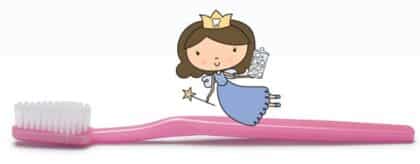Wintertime in Madison is glorious! From sledding in Elver Park to skating on Lake Mendota, there are so many reasons to smile this time of year. But, one drawback of our dry, chilly weather is the discomfort it can cause our teeth. Here are a few tricks for combating dry mouth and sensitive teeth to help you stay comfortable throughout the winter months.
Tackling Dry Mouth
- Stay hydrated.
- Use a humidifier.
- Avoid sugar, alcohol, caffeine, and acid.
Desensitize Teeth
- Protect teeth from the cold air.
- Use a straw.
- Try toothpaste for sensitive teeth.
Easing Dry Mouth in the Winter
The cold, dry winter Madison air might be drying out your mouth, especially if you’ve had a cold lately and have been breathing through your mouth more. If you already struggle with dry mouth, the condition of not having enough saliva, the winter months can exacerbate your symptoms. You may be experiencing a sticky feeling in the mouth, trouble swallowing, burning or itching in the throat and mouth, mouth sores, and frequent throat and mouth infections.
To help combat dry mouth, first make sure that you are adequately hydrated. Drinking water will both stimulate saliva production and wash away debris and bacteria from between the teeth. You can also try using a humidifier at night to keep your mouth from drying out. It might also reduce nasal congestion and decrease the chance of mouth breathing during sleep.
Additionally, keep an eye on the foods and drinks you consume. Sugar, alcohol, caffeine, and acid can make dry mouth worse. Look for foods that have naturally high water content, such as fruits and vegetables and low-sodium soups. Sucking on sugar-free candy or chewing sugar-free gum can also help stimulate saliva production.
Taking the Sting out of Sensitive Teeth
Do your teeth feel more sensitive in the cold weather? There’s a scientific reason for it. Temperature changes cause your teeth to expand and contract, causing tiny cracks to form. While these fractures won’t usually weaken or damage your teeth, they can make them more sensitive.
Minimize the sting when you’re outside by breathing through your nose so that the cold air doesn’t hit your teeth directly. You can also try wearing a scarf or neck warmer over your mouth to protect your teeth from the cold.
Hot and cold food and beverages can have the same effect on teeth as the weather. Ease the discomfort by using a straw to bypass your teeth when drinking warm or iced beverages.
Another way to soothe your smile is to use toothpaste for sensitive teeth. This toothpaste is specially formulated to block pain sensors in the teeth from triggers such as heat, cold, and sugar. However, if you’re experiencing new or worsening sensitivity, be sure to let your dentist know. It may be more than just the weather, such as a cavity.
For further reading: Why are My Teeth Sensitive?
Family Dentistry in Madison, Wisconsin
How are your winter whites? If you need help scheduling an appointment for you or your family members, please give us a call today. Affiliated Dentists offers pediatric, cosmetic, and restorative dentistry in Madison, Wisconsin.
Combating Dry Mouth and Sensitive Teeth brought to you by Dr. Mark Gustavson


